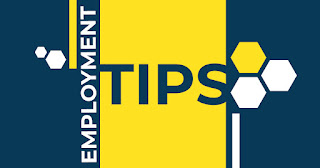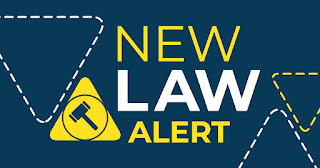There are no moratoriums in place for residential properties by Executive Order but residential evictions based on non-payment are governed by the Tenant Safe Harbor Act. Courts may be prohibited issuing a warrant of eviction or judgment of possession against a residential tenant experiencing COVID-19-related financial hardship, if the tenant raises it as an affirmative defense and the Court determines that the tenant is suffering such hardship. Listen to our podcast HERE for what this means to residential landlords.
Wednesday, October 21, 2020
There are no moratoriums in place for residential properties by Executive Order but residential evictions based on non-payment are governed by the Tenant Safe Harbor Act. Courts may be prohibited issuing a warrant of eviction or judgment of possession against a residential tenant experiencing COVID-19-related financial hardship, if the tenant raises it as an affirmative defense and the Court determines that the tenant is suffering such hardship. Listen to our podcast HERE for what this means to residential landlords.
Wednesday, October 14, 2020
Creating and issuing clear policies and enforcing such policies will make managing remote employees less onerous and less costly. Mordy Yankovich, Esq. provides policy advice in The Suffolk Lawyer.
CLICK HERE to review the full article.
On October 14, 2020, the EEOC issued a final rule, 29 CFR 1601 & 1626, for charges of employment discrimination. The key to this rule is to clarify that just because EEOC makes a "no cause" determination, that doesn't mean there is no discrimination and a victim can still hire an attorney and pursue a private lawsuit against their employer. While this change is minor in law, it's very important to clarify victim's rights.
Specifically, the rule now includes a notice to the victim of their right to file a lawsuit (within 90 days of receipt of the determination) and clarifies that a "no cause" determination doesn't mean that the "claims have no merit." Now, the Dismissal and Notice of Rights will read as follows:
The EEOC issues the following determination: The EEOC will not proceed further withTo be clear, the point of this change is to make sure everyone understands that "even
its investigation, and makes no determination about whether further investigation would
establish violations of the statute. This does not mean the claims have no merit. This
determination does not certify that the respondent is in compliance with the statutes. The
EEOC makes no finding as to the merits of any other issues that might be construed as
having been raised by this charge.
after the EEOC has decided not to proceed further with its investigation, private proceedings or
litigation may lead to court findings of discrimination or settlements for the charging parties."
Additionally, the rule clarifies deferrals to state agencies and it provides for the digital transmission of documents by way of providing access to a system with a unique login to retrieve documents. However, don't worry if you aren't tech savvy because the EEOC will mail hard copies to the parties if the system records no access for a reasonable time.
Monday, October 12, 2020
Specifically, Chief Administrative Judge Lawrence K. Marks issued Administrative Order 231/20, which permits the prosecution of residential evictions commenced after March 17, 2020.
As of October 12, 2020, here are the rules are in place for residential and commercial proceedings:
Residential Eviction Proceedings
- Proceedings Commenced Prior to March 17, 2020:
- The court must conduct a status or settlement conference wherein the court reviews the procedural history of the case, any effect of the COVID-19 pandemic, if any, upon the parties, any other relief or protection available to the tenant, among others. Thereafter, the court may take further steps it deems appropriate, including allowing the matter to proceed and allowing the enforcement of warrants of eviction.
- Proceedings Commenced After March 17, 2020:
- All residential eviction matters (nonpayment and holdover) may proceed subject to:
- Current or future federal and state laws affecting evictions;
- For evictions based on nonpayment of rent:
- FHA, Fannie Mae, Freddie Mac borrowers are prohibited from starting nonpayment evictions and are encouraged to seek forbearance and other options with their lenders;
- The CDC also halts evictions for nonpayment of rent until December 31, 2020. You can read more about it and the penalties HERE.
- The individual court’s scheduling requirements as affected by health and safety concerns due to COVID-19.
- Nonpayment proceedings are subject to the Tenant Safe Harbor Act:
- Courts are prohibited from issuing a warrant of eviction or judgment of possession against a residential tenant or other lawful occupant who suffered a financial hardship during the COVID-19 period and is being evicted for non-payment of rent due during such period.
- Currently, the COVID-19 period runs from March 7, 2020 to January 1, 2021, as extended by Executive Order 202.66 and subject to any further extensions. This means that courts will only issue money judgments (no warrants of evictions and judgments of possession) on eviction proceedings based on nonpayment of rent due during the COVID-19 period.
- Proceedings Commenced Prior to March 17, 2020:
- May proceed in the normal course subject to:
- Any existing prohibition on the prosecution or enforcement of evictions (as of this writing, there are none); and
- The suspension of statutory deadlines until November 3, 2020 per Executive Order 202.67.
- Proceedings Commenced After March 17, 2020:
- Eviction proceedings for nonpayment of rent are prohibited until October 20, 2020 per Executive Order 202.64 and subject to any further extensions.
- Holdover eviction proceedings may be commenced but remain suspended until further order of the court per Administrative Order 160A/20. This means the petition may be filed and the tenants may file an answer, but the proceedings shall remain suspended. However, if all parties are represented by counsel, the matter may be eligible for calendaring virtual settlement conferences with the court.
- All proceedings will be conducted remotely whenever appropriate.
- Mediation and other alternative dispute resolution methods are encouraged where either all parties are represented by counsel; or all parties are unrepresented by counsel.
- All petitions must include the Notice to Respondent Tenant.
- Filing and service may be done through NYSCEF, if available and by mail, if not.
Landlords should immediately file their evictions and preserve their rights.
Friday, October 09, 2020
The new FAQs require employers to report in-patient hospitalizations and fatalities for work-related, confirmed, cases of COVID-19.
For in-patient hospitalization, the specific rules are:
- Employers must report in-patient hospitalization within 24 hours of the work-related incident. A work-related incident means that the employee was exposed to COVID-19 in the workplace.
- The 24-hour reporting period starts when the employer:
- learns that an employee was in-patient hospitalized within 24 hours of a work-related incident; and
- determines afterward that the cause of the in-patient hospitalization was a work-related case of COVID-19.
- The above rules only apply to reporting but not to record keeping. Employers must still record work-related confirmed COVID-19 cases regardless of whether an employee was hospitalized.
For employees who died due to a work-related, confirmed, case of COVID-19, the specific rules are:
- Employers must report them within 30 days of the work-related incident or the employee’s exposure to COVID-19 in the workplace.
- The employer must report the fatality to OSHA within 8 hours of knowing or determining:
- that the employee died within 30 days of exposure to COVID-19 in the workplace; AND
- that the cause of the death was a work-related case of COVID-19.
- Similar to in-patient hospitalization, the above limitations only apply to reporting and not to record-keeping.
Employers are advised to consult counsel to ensure compliance and to roll out a tailored record keeping and reporting procedures compliant with OSHA’s requirements.
According to the EEOC, they pay $174,000 and attorneys' fees on cases that go to trial are between $195,000-$279,000.
You should get your training to prevent discrimination at your workplace today - sexualharassmenttrainingny.com or call 646.216.8038
On October 9, 2020, the EEOC submitted a proposed rule in the Federal Register to change the conciliation procedures in an employment discrimination lawsuit.
Basically, a conciliation is a required mediation of the discrimination case undertaken after EEOC finds reasonable cause for a charge, but before a lawsuit is filed. Historically, the process has been a mystery for employers as EEOC kept the steps, charges, and process secret. This mystery has resulted in approximately 1/3 of employers refusing to participate in conciliation even though the process is confidential and can't constitute evidence against such employer (unless otherwise agreed upon in writing).
The proposed rule requires that "the Commission will provide to the respondent, if it has not already done so:
(1) A summary of the facts and non-privileged information that the Commission relied on in its reasonable cause finding, and in the event that it is anticipated that a claims process will be used subsequently to identify aggrieved individuals, the criteria that will be used to identify victims from the pool of potential class members;
(2) a summary of the Commission's legal basis for finding reasonable cause, including an explanation as to how the law was applied to the facts, as well as non-privileged information it obtained during the course of its investigation that raised doubt that employment discrimination had occurred;
(3) the basis for any relief sought, including the calculations underlying the initial conciliation proposal; and
(4) identification of a systemic, class, or pattern or practice designation. The Commission also proposes to specify that the respondent participating in conciliation will have at least 14 calendar days to respond to the initial conciliation proposal from the Commission."
These rules are terrific and will result in increased settlements because an employer now has the ability to ascertain risk and then, strategically engage in meaningful settlement discussions in the conciliation process rather than blindly throwing money at a situation to make it go away.
We encourage you to comment on the proposed rule should you have any suggestions to enhance its effectiveness by writing your thoughts, up until November 9, 2020, and sending them by mail, with reference to RIN Number 3046-AB19, to Bernadette B. Wilson, Executive Officer, Executive Secretariat, U.S. Equal Employment Opportunity Commission, 131 M Street NE, Washington, DC 20507.
Monday, October 05, 2020
Tuesday, September 29, 2020
On September 28, 2020, Mayor De Blasio signed a bill into law amending the New York City Paid Sick and Safe Leave law to make it largely consistent with New York State's new Paid Sick Leave law.
The law amends the New York City Paid Sick and Safe Leave law as follows:
Amount of Sick Leave:
- Employers with 4 or fewer employees and a net income of over a million dollars are obligated to provide 40 hours of Paid Sick and Safe Leave per calendar year (no prior requirement);
- Employers with 5-99 employees (regardless of net income) are required to provide 40 hours per calendar year (unchanged);
- Employers with 100 or more employees are required to provide 56 hours of paid sick leave per calendar year (previously 40 hours).
- Each pay period, an employer must provide to all employees a writing (whether via paystub or other document) containing the amount of sick leave accrued and used by the employee;
- If employers require employees to provide supporting medical documentation when using Paid Sick and Safe Leave, employers must reimburse employees for any fees incurred in obtaining such documentation;
- The new law permits the City to conduct an investigation into employer violations (even if there is no employee complaint) and commence a civil litigation against an employer;
- Employers can face civil penalties of $500 per violation plus a $15,000 penalty if they engage in a "pattern or practice" of violation of the law. If employee is discharged in violation of the law, an employer can be obligated to pay a $2,500 penalty in addition to lost wages/benefits.
The amendments to the law take effect on September 30, 2020. Employers with employees in New York City should update their policies to avoid exposure.
Friday, September 25, 2020
Watch the hearing live now here
What do you think?
The key question was whether there should be legislation to cap the number of salespersons per supervising broker. Wowwwwwww
Tuesday, September 22, 2020
Persons eligible to apply for the destruction of expunged marijuana (a/k/a, marihuana) convictions records are:
- Persons convicted of Penal Law 221.10: “A person is guilty of unlawful possession of marihuana in the first degree when he knowingly and unlawfully possesses one or more preparations, compounds, mixtures or substances containing marihuana and the preparations, compounds, mixtures or substances are of an aggregate weight of more than one ounce.”
- Persons convicted of Penal Law Section 221.05: “[a] person is guilty of unlawful possession of marihuana in the second degree when he knowingly and unlawfully possesses marihuana.”
Persons adjudicated as Youthful Offenders are not eligible for expungement and destruction because such adjudication is not considered a conviction.
The following records will be destroyed:
- Arrest records;
- Prosecution records;
- Criminal history records;
- Any dismissal of your case; and
- Any expungement of your conviction.
If you are interested in getting your marijuana conviction expunged and records destroyed, you should complete an Application to Destroy Expunged Marihuana Conviction Record and file it with the court where you were convicted. There is no application filing fee and you may file multiple applications if you were convicted in multiple courts.
Monday, September 21, 2020
There are no moratoriums in place for residential properties by Executive Order. Irrespective of Governor Cuomo’s Executive Orders, court directives are still in place whereby landlords and lenders are permitted to initiate residential and commercial evictions and foreclosures not based on nonpayment but such proceedings remain suspended until further notice. You can read more about these court directives HERE and HERE. Further, residential evictions remain governed by the Tenant Safe Harbor Act as well, which prohibits courts from issuing a warrant of eviction or judgment of possession against a residential tenant experiencing COVID-19-related financial hardship, among others.
Thursday, September 03, 2020
County of ______________ )
______________, being duly sworn, deposes and says the following:
I either expect to earn no more than $99,000 in annual income for Calendar Year 2020 (or no more than $198,000 if filing a joint tax return), was not required to report any income in 2019 to the U.S. Internal Revenue Service, or received an Economic Impact Payment (stimulus check) pursuant to Section 2201 of the CARES Act;
I am unable to pay my full rent or make a full housing payment due to substantial loss of household income, loss of compensable hours of work or wages, lay-offs, or extraordinary out-of-pocket medical expenses;
I am using best efforts to make timely partial payments that are as close to the full payment as the individual’s circumstances may permit, taking into account other nondiscretionary expenses;
If evicted I would likely become homeless, need to move into a homeless shelter, or need to move into a new residence shared by other people who live in close quarters because I have no other available housing options.
I understand that I must still pay rent or make a housing payment, and comply with other obligations that I may have under my tenancy, lease agreement, or similar contract. I further understand that fees, penalties, or interest for not paying rent or making a housing payment on time as required by my tenancy, lease agreement, or similar contract may still be charged or collected.
I further understand that at the end of this temporary halt on evictions on December 31, 2020, my housing provider may require payment in full for all payments not made prior to and during the temporary halt and failure to pay may make me subject to eviction pursuant to State and local laws.
_________________________________
Signature of Declarant
____ day of ___________, 2020
_________________________________
Notary Public
Wednesday, September 02, 2020
- The individual has used best efforts to obtain all available government assistance for rent or housing;
- The individual either (i) expects to earn no more than $99,000 in annual income for Calendar Year 2020 (or no more than $198,000 if filing a joint tax return), (ii) was not required to report any income in 2019 to the U.S. Internal Revenue Service, or (iii) received an Economic Impact Payment (stimulus check) pursuant to Section 2201 of the CARES Act;
- the individual is unable to pay the full rent or make a full housing payment due to substantial loss of household income, loss of compensable hours of work or wages, a lay-off, or extraordinary out-of-pocket medical expenses;
- the individual is using best efforts to make timely partial payments that are as close to the full payment as the individual’s circumstances may permit, taking into account other nondiscretionary expenses; and
- eviction would likely render the individual homeless—or force the individual to move into and live in close quarters in a new congregate or shared living setting—because the individual has no other available housing options.
Tuesday, September 01, 2020
Wednesday, August 26, 2020
Tuesday, August 25, 2020
In plain English, if you have an employee with a pre-existing disability that either "puts her at greater risk during this pandemic" or, if such disability will be "exacerbated by the pandemic," and such employee requests a reasonable accommodation, then, you better either grant that request or engage in the "interactive process" to avoid getting sued.
Monday, August 24, 2020
On Sunday, 8/23/20, between 12pm and 1pm on WRCN 103.9FM, LIEBCAST aired an hour episode on Homeless Housing.
The conversation was inspired by the Facebook Group - Upper West Siders for Safer Streets. With well over 11k members in under a month - this group was formed in response to rising crime and safety concerns after 3 luxury hotels in the neighborhood were converted into homeless shelters.
We start the episode with a conversation on ethics and we breakdown how successful businesses succeed with ethical discretion in the context of contractual obligations and the law.
We thereafter bring on a representative from the Facebook Group - Upper West Siders for Safer Streets.
Then, we go deep into the following topics:
- Real estate value losses / underwater real estate
- How a hotel can become a homeless shelter
- Unraveling whether homeless people are more likely to be drug users, sex offenders, substance abusers and mentally unstable
- The De Blasio Administration
- Safety, Crime and Police Action in NYC
- Where to relocate homeless people
























